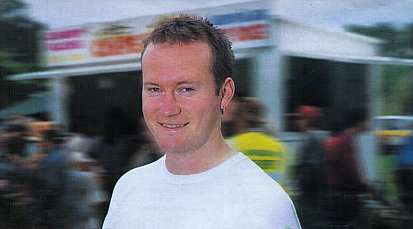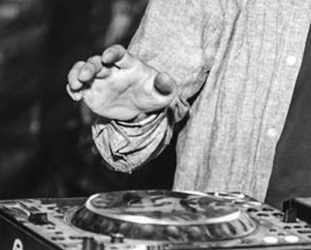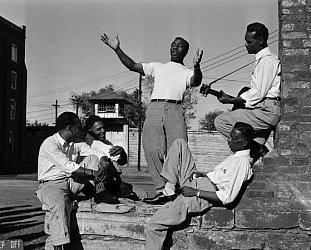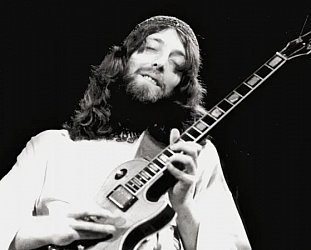Graham Reid | | 5 min read

Within a free-ranging half-hour he also quotes Noel Gallagher and knowledgeably mentions PJ Harvey, Radiohead, David Bowie, Talk Talk, and Paul Simon's song-writing method.
Auckland-based McLaney breathes music and makes some of the most interesting to come out of this country in the past decade. It's only a matter of time before this versatile, accomplished singer-songwriter — now onto his third album — gets his dues.
He's made it slightly hard on himself by putting out his new album Permanence under the band name Gramsci, named after an Italian socialist and political martyr. His rationale is simple: "I'd rather the music define the name, than the name define the music."
McLaney is sitting in the boardroom of Zomba, the major player, independent label which has picked him up on the strength of his two previous albums, the 97 solo debut Pedestrian and the excellent follow-up The Prayer Engine, with the Avalanche Trio.
Even a cursory listen to Permanence suggests Zomba's faith in 25-year-old McLaney is well-placed. It bristles with energy and occasional introspection, there are echoes of Jeff Buckley and Chris Whitley, he crafts a fine lyric and there's a pleasingly lo-fi, hands-on sound to the production.
The song Easy — which McLaney says was simply a scratch vocal and a spontaneous inspiration in the studio with fellow writer and producer David Holmes — was also the highest charting indie release of last year.
"Which is probably why I'm sitting in this room now," he laughs.
McLaney is comfortable in this context, however. This was part of the admittedly flexible game plan and he has put in the hard yards by performing regularly and writing constantly.
"The first album was answering that question, 'How do you make a CD and what do you do once you've made it?' The second was the Big Artistic Statement, and this one is putting all that knowledge into action and taking time to get it right.
" Prayer Engine is like a Polaroid that caught the moment quickly. This album is like a painting which is more considered, and there are certain things highlighted."
If three albums in four years and a promotion/distribution deal with a company which has market clout sounds a little too easy, then it's salutary to scan British-born McLaney's background.
His family emigrated to New Zealand when he was 8, returned to Britain briefly, then made the trip back when he was 12. He picked up guitar at Whangarei Boys' High School. It comes as little surprise given the breadth of his musical knowledge that he has a scholar's training. He qualified as a lawyer at Otago University.
What he also got from Dunedin, aside from playing in a band, was its rich musical history.
"It's definitely quite a philosophical place because it's so freezing everyone sits around fires and talks to each other. So there's a lot more discourse about what you do. There's lots of ideas flying around."
What set McLaney apart from the talkers is he looked at music as a viable career option: "I met lots of people who'd say they were putting a band together. So, get a drummer and get a bass player. That's the start."
He also felt a negativity in Dunedin's musical culture: "The successful bands seem to get pulled down. But if you don't want anyone to hear what you are doing then don't record it. But if you put out an album and you've done exactly what you wanted to do and it goes on to sell, where's the problem?
"You just want to communicate with like-minded people, that's the whole thing about wanting better distribution and marketing. If people know what you do then they can make better decisions about whether they want to listen to you or not. It's not about being on some incredibly cool obscure label where unless people are searching you never get found."
He laughs and quotes the Crowded House philosophy — "not selling out, buying in" — and says while in Dunedin he also decided he'd rather be a romantic and get burned than be cynical. "There's enough cynicism around and if you become cynical, eventually that'll seep into your music. What music is about for me is getting out of that world and into an alternative one."
During an itinerant period after university — time in Auckland, Queenstown, Napier and now back in Auckland — he performed and disciplined himself to write.
"I was serious about wanting to do this so treated it like a job. It's not hard to put a band together and write songs, it's hard to maintain a living, however, and I was a soloist for a long time because you have low overheads. You have to be realistic.
"I had a real discipline about songwriting and would write every day. When I was in Auckland previously I'd play every week at the Temple and promised myself I'd have a new song every week. They might not be the best songs in the world but every time you write you've learned something new and can see what will work and what won't.
"By writing all the time I discovered if it's less forced the lyrics are going to be a bit more inspired. If you want to be a writer you need to read books, that's where you get the words from. If I want to read incredible writing I'll read Hermann Hesse or if I want to read more flowery writing I'll read Ben Okri. Writers give you words, musicians give you riffs."
What McLaney has given with Permanence is both, and he is unashamedly ambitious for it.
"Yeah. I want as many people as possible to hear what I'm doing."
Once Permanence kicks in, doubtless they will.





post a comment